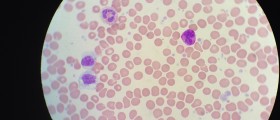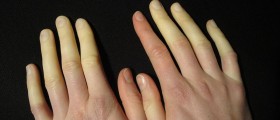
Causes
There are several reasons as to why a nosebleed might occur. Normally, climactic conditions can have an impact. Dry air or hot indoor air can thin the membrane inside the nose and thus make the blood vessels more vulnerable than usual. With children, picking the nose or blowing too hard whilst affected by a cold can also be causes. These actions can also cause bleeding in adults, but usually nosebleeds only occur infrequently as a result of these actions.
Some medical conditions can lead to frequent bleeding from the nose. These conditions include sinusitis, deviated septum and allergies. Another cause that might result in frequent nosebleeds is high blood pressure. Should one’s blood pressure rise, the blood vessels could burst. Other serious health problems could also be causes of bleeding from the nose.
The early stages of leukemia might be indicated by regular nosebleeds. This disease increases the number of white blood cells, which then flood the bloodstream. Unable to perform their normal functions, these cells have an effect on the numbers of red blood cells and platelets, which leads to anemia.
Vitamin K deficiency can lead to clotting of the blood and can make one prone to nosebleeds and other bleeding problems. Some people suffer from disorders which affect the clotting ability of blood and the healing of wounds. A sign of this disorder is regular bleeding of the nose. These bleeding disorders are usually inherited.
Tumors in the nose and blood thinners can also cause frequent bleeding.
Stopping the Bleeding
Whatever the extent of the frequency, one should make every effort to stop the bleeding. Sit or stand erect - this will lessen the flow to the nose. Press your fingers half way up the nose, where the bone and cartilage meet and keep this pressure applied for ten minutes. This will allow the blood to clot at the site of the bleeding. If this does not stop bleeding, continue to apply pressure until the flow stops.
If you are worried that bleeding of the nose in you or someone close to you is an indicator of a more serious condition, consult a doctor as soon as possible. This will allow you to either eliminate or confirm the presence of a possibly serious condition at the earliest possible opportunity.
- www.nhs.uk/conditions/nosebleed/
- www.nhs.uk/conditions/pregnancy-and-baby/nosebleed-pregnant/
- Photo courtesy of Peretz Partensky by Flickr: www.flickr.com/photos/ifl/4810977353/

















Your thoughts on this
Loading...